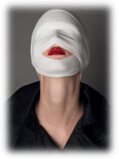短文写作 > 知识学习 > 写作文的步骤 >
Planning a Composition(规划作文)
1. Planning a Composition(规划作文)

When a topic is assigned, we should work out a plan(制定计划)and make sure that we have enough material(材料充足).
Let us look at the following composition:
My Neighbors Were Moving Away
My next door neighbors were moving away, I was told. I sat in the doorway watching them pack. Through the open door I could see their odds and ends(零碎东西)falling all over the place. I don't like moving. It is like pulling up a tree by the roots. I had that experience myself a couple of years before when my family moved along with my father's institute from inland to the coastal area.
Fortunately we moved as a community. So after some confusion(混乱)and adjustment(调整), everything fell back into place again. I played with my old friends. Soon we got so used to our new surroundings that we seemed no longer aware of the change.
It was not until I started school a year later that I began to learn about the world outside our residential area(住宅区). My school was an unpleasant place with low buildings amidst vast tracts(空地)of field with villages scattered(分布)here and there. My schoolmates were a bunch of noisy kids who had no shoes on. When I went home at the end of my first school day, I suddenly felt such a strong attachment to those concrete constructions(混凝土建筑), which rose solitarily(寂寞地)above the horizon that I ran until I was in their arms again. I then came to understand what the older children meant by “we” and “they” and why adults always warned us not to wander(游荡)far from home.
Now I heard Aunt Wang's loud voice on top of all the confusion in the flat next door. She was head of the family and a very good housewife. She could make all kinds of tasty pickles(咸菜)and cut clothes as fashionable as those sold in town. But my sister whispered to me the other day that Aunt Wang and her family were country folks(乡巴佬)and were unpopular with “our” people. My sister was sorry to tell me this, for she loved the trousers Aunt Wang had made for her.
Now Uncle Fan showed himself at the door with a large bowl of noodles red with chili sauce(辣椒酱). The very sight of it made my mouth water. He was about to squat down(蹲下)at the threshold(门槛)when his wife called his name. Suddenly, as if remembering something, he smiled at me and sat back on his stool(凳子).

Soon it would be four in the afternoon, time for girls to go out to play. But I knew their daughter Lili was not coming to join us today. She was one of those who jumped high and ran fast. As usual she beat a good many of us in a school game last Monday.
Then there was a dispute(争吵)over the regulations, the losing side accusing(指责)the winning side of cheating. As the dispute turned increasingly hot and bitter, Lili became the target of criticism. Some of the older girls fell in a violent rage(暴怒)and openly mentioned her family's “humble”(低劣的)origin. They said she was one of “them” who had disguised(伪装)herself to be one of “us.” Then even the girls on her side, who were a minute before arguing at the top of their voices, became dumb and left her. Lili was isolated(孤立的). Anger deformed her features(扭曲了容貌), and tears came to her eyes. All my friends, my sister, and her friends were on the opposite side. I felt a number of times her eyes were fixed on me, burning with frightening contempt(蔑视). I hated myself, but I failed to utter(说出)a word. She never spoke to me after that.
A truck loaded with their possessions(财物)was parked in front of our building. Lili, Aunt Wang, and Uncle Fan came out with the last few pieces of furniture. As I watched from the window, tears stole down my cheeks. I knew that Lili would soon walk out of my life.
Student
We may agree that the author has something interesting to say, but it is difficult to tell the purpose of her writing and we cannot find a central theme(主题). If we examine the composition closely, we will find that the neighboring paragraphs are not always closely related; neither are the sentences in each paragraph. Furthermore, some details have nothing to do with the topic.
Let us take a look at the details:
(1) My neighbors were moving away.
(2) I had the same experience of moving a couple of years before.
(3) We moved with other families of the institute so that I could still play with my old friends.
(4) When I started school I found my school was an unpleasant place with low buildings and my schoolmates were noisy kids who had no shoes on.
(5) I felt a strong attachment to the concrete construction in which I lived.
(6) I came to understand what the older children meant by “we” and “they.”
(7) Our neighbor Aunt Wang could make tasty pickles and the most fashionable clothes, and she had made nice trousers for my sister.
(8) My sister told me that Aunt Wang and her family were country folks.
(9) Uncle Fan had the habit of squatting at the threshold when eating his noodles.
(10) Their daughter Lili was one of those who ran fast and jumped high.
(11) A dispute broke out after her side won a game and Lili became the target of criticism simply because she was one of “them”.
(12) Even girls on her side left her because of her “humble” origin.
(13) I failed to support Lili and she never spoke to me after that.
How to plan a composition?(如何规划一篇作文?)
1) Putting down all the relevant facts(记下所有相关事实)
Actually, what the writer should have done at the very beginning was to think of as many relevant facts as she could, make such a list as the one above, and then try to find a proper theme.
Now let us make use of the above list and see how we should go about the task.
2) Thinking of a proper theme and deciding on the purpose(想一个合适的主题,确定写作目的)
Having listed all the facts, we should think of a theme, that is, a controlling idea, and decide on our purpose. Our theme may be:
(1) My neighbors moving away reminds me of my similar experience, or
(2) I am sorry to see them leave and regret losing my neighbor Lili's friendship.
Obviously, most of the facts listed have something to do with theme 2, and with this theme, we are able to show our purpose: disapproval(不赞成)of the snobbishness(势利)which had a pernicious(有害的)effect even upon children.
3) Re-examining our list of details and outlining(再次检查列出的细节,列提纲)
Now with our purpose in mind, we should look at the list again and cut out(删去)irrelevant, unnecessary, or unimportant details; in this case, we should cross out at least details 2, 3 and 5 which have little to do with the topic. Then we should rearrange(重新整理)the facts in a logical order(按逻辑顺序)and write an outline. While doing so, it may be necessary for us to add important details which will help us achieve our purpose.
The following is a sentence outline(句子提纲)which we should prepare before writing:
Topic: My neighbors were moving away
Thesis: I was sorry to see them go and regretted having lost Lili's friendship.
Outline:
I. My neighbors were getting ready to move.
II. My neighbors were a family of three.
A. Aunt Wang, a capable housewife, was actually “head” of the family.
1. She could make all kinds of delicious pickles.
2. She could cut clothes as fashionable as those sold in town and had made nice trousers for my sister.
3. But my sister was sorry to tell me that Aunt Wang was not one of “us”, for her family were country folks.
B. Uncle Fan was a soft-spoken and timid man of few words.
1. He had the habit of squatting down at the threshold when having his meals.
2. He ... (更多细节).
C. Their daughter Lili used to be a good friend of mine.
1. She and I used to ... together.
2. She could run fast and jump high.
3. She ... (更多细节).
III. I lost Lili's friendship.
A. A dispute broke out after Lili's side won a game.
1. Lili became the target of criticism simply because she was not one of “us”.
2. Even girls on her side deserted her.
B. She looked for my support but I failed her.
1. As my sister and all the other girls were on the side against her, I did not have the courage to speak out and defend her.
2. I hated myself for being weak and snobbish.
C. Lili never spoke to me again after that.
Ⅳ. I was sorry to see them go and regretted having lost Lili's friendship just because I was foolish enough to believe that “we”, children of..., were better than “they”, children of peasants.
Sometimes, after the outline is written, we may find the topic we have first decided on does not express our central idea. We should then revise or even change the topic. For example, “Neighbors Are Dearer than Distant Relatives” or “Something I Have Regretted to This Day” may be better topics than “My Neighbors Were Moving Away”, for they give the reader a better idea of what the writer wants to say in the composition.
a. Types of outline(提纲的种类)
An outline like the above is called a sentence outline(句子提纲), for it is made up of sentences. We see that the controlling idea or thesis is subdivided into(被再分为)smaller parts. Roman and Arabic numerals(罗马数字或阿拉伯数字)or lettersof the alphabet are generally used to number and order ideas:
Thesis (controlling idea)
Ⅰ. Introduction
Ⅱ. Main Idea
A. Sub-idea
B. Sub-idea
1. Supporting detail
2. Supporting detail
a. Fact 1
b. Fact 2
III. Main idea
A. Sub-idea
1. Supporting detail
2. Supporting detail
B. Sub-idea
C. Sub-idea
Ⅳ. Conclusion
There is another kind of outline called the topic outline(主题提纲). A topic outline consists of nouns and their modifiers(名词及其修饰语), or their equivalents, that is, gerund phrases(动名词短语)or infinitive phrases(不定式短语). A topic outline for “Neighbors Are Dearer than Distant Relatives” may be written like this:
Topic: Neighbors Are Dearer than Distant Relatives/Something I Have Regretted to This Day
Thesis: I am sorry to see my neighbors move away and regret having lost Lili's friendship.
Outline:
Ⅰ. My neighbors getting ready to move
Ⅱ. My neighbors being a family of three
A. Aunt Wang, “head” of the family
1. A good cook
2. A good dressmaker
3. A peasant woman
B. Uncle Fan
1. A typical peasant
2. ...
C. Their daughter Lili
1. A friend of mine
2. A good athlete
3. ...
III. My loss of Lili's friendship
A. The cause
B. The consequence
Ⅳ. My regrets and the lesson I have learned
Before writing a paper, we may prepare either a topic outline or a sentence outline. A topic outline is brief and clear, and it gives the reader an instant overview(综述)of the entire paper. A sentence outline, on the other hand, provides a more detailed plan of the paper.
b. Rules for writing outlines
If we examine closely the two outlines above, we may see that they follow these rules:
(1) If there is a major point(要点)marked “I”, there must be at least another marked “II”; if there is an “A”, there must be a “B”, and so on.(有I则应该有II,有A则应该有B,以此类推;无II就应该无I,等等。)
(2) A topic outline is written in noun phrases, and a sentence outline, in sentences. Sentences and phrases are not used together in the same outline.(在同一个提纲中不能混用句子和短语。)
(3) Parallel structures(平行结构)are used for the headings of the same rank(同一级别). (同一级别的项目用同一个平行结构;)
(4) Subheads(次标题)of like rank are of equal importance and are related to the heading and arranged in logical order.(同一级别的次标题同等重要,并且按照逻辑顺序排列。)
(5) The thesis is a complete declarative sentence(陈述句), usually in the affirmative(肯定句). It is one sentence which expresses our controlling idea.(主题陈述往往是一个肯定陈述句,能够表达中心意思。)
|
★Task
|

Below are facts and ideas provided by students on the advantages or disadvantages of plastic/cosmetic surgery(整容). Think of a proper theme, decide on your purpose, re-examine the lists, and use your own words to write an outline, making use of details related to your theme.
Advantages:
1. Plastic surgery is a means of gaining confidence and self-esteem(自尊).
2. A beautiful appearance can improve one's chances in the job market and later help one's career.
3. People not beautiful may be neglected. Some graduates are turned down by employers due to their homely appearances.
4. Some positions related to public relations, mass communication and foreign affairs require pleasant appearances, which may represent the image of the department.
5. Just as people should dress neatly and wear some make-up when appearing in public places, a beautiful appearance is also a sign of respect for others.
6. “A thing of beauty is a joy for ever.” (Keats: “Endymion”——恩底弥翁(希腊神话中月之女神所爱的英俊牧童))
7. With the development of technology, the risks and costs of plastic surgery can be minimized.
8. Having plastic surgery does not necessarily mean neglecting inner beauty.
9. The Beauty industry has become an integral part of economy and will help promote other industries.
10. Plastic surgery is a personal choice, having nothing to do with others.
Disadvantages:
1. Plastic surgery is expensive.
2. The failure rate in cosmetic surgery is high.
3. The foreign matter implanted into our body may not be safe.
4. Different people have different standards of beauty. What some people regard as beautiful may be regarded as ugly by others.
5. Standards of beauty, like fashion, are always changing; we can never keep up with them. Bound feet are no longer considered as beautiful today as they were in the Song dynasty.
6. “Beauty is in the eye of the beholder(旁观者).”
7. Handsome is that/as handsome does.
8. As everyone will become old, outer beauty is temporary.
9. It is capability not beauty that determines one's destiny.
10. One's appearance may have positive or negative influences, but they are definitely not crucial.
11. Companies will not hire a girl with an appealing appearance but no brains.
12. Our natural appearance is exclusive to ourselves. It makes us unique.
13. Real beauty is a combination of external and internal beauty.
14. True beauty stems from character, integrity(正直)and ability.
15. The meaning of life lies in cultivation and perfection of character instead of seeking transient(短暂的)outer beauty.
|
Keys for Reference
Topic: Say “Yes” to Plastic Surgery
Thesis: Plastic surgery is an effective way to change one's life and destiny.
Outline:
I. Love of beauty is human nature.
Ⅱ. A beautiful appearance can improve one's chances in the job market and later help one's career.
A. Some positions related to public relations, mass communication and foreign affairs require pleasant appearances.
B. ... was turned down by employers due to her/his homely appearance.
C. ... managed to get a good job after plastic surgery.
III. With the development of technology, the risks and costs of plastic surgery can be minimized.
Ⅳ. Plastic surgery is a personal choice which everyone is entitled to make.
Ⅴ. Having plastic surgery does not necessarily mean neglecting inner beauty.
Topic: Say “No” to Plastic Surgery
Thesis: Plastic surgery should not be encouraged because it is harmful to one's body and mind.
Outline:
I. Plastic surgery is harmful to one's body.
A. Statistics show that the failure rate in plastic surgery is high.
B. The foreign matter implanted into our body may not be safe.
C. There are examples of people who had several plastic surgeries because of changes in the standards of beauty and have thus ruined not only their appearance but also their health.
Ⅱ. Plastic surgery is harmful to one's mind.
A. Real beauty is a combination of external and internal beauty.
B. One's choice of plastic surgeries shows one's preference for external beauty over internal beauty as well as lack of confidence in one's character and ability.
C. Obsession with(痴迷)external beauty may be an obstacle for people to seek inner beauty.
III. It is capability, not beauty that determines one's destiny.
A. External beauty is transient while internal beauty remains.
B. Our mind and energies should be concentrated on cultivation of ability and perfection of character.




 Soon it would be four in the afternoon, time for girls to go out to play. But I knew their daughter Lili was not coming to join us today. She was one of those who jumped high and ran fast. As usual she beat a good many of us in a school game last Monday.
Soon it would be four in the afternoon, time for girls to go out to play. But I knew their daughter Lili was not coming to join us today. She was one of those who jumped high and ran fast. As usual she beat a good many of us in a school game last Monday. Below are facts and ideas provided by students on the advantages or disadvantages of plastic/cosmetic surgery(整容). Think of a proper theme, decide on your purpose, re-examine the lists, and use your own words to write an outline, making use of details related to your theme.
Below are facts and ideas provided by students on the advantages or disadvantages of plastic/cosmetic surgery(整容). Think of a proper theme, decide on your purpose, re-examine the lists, and use your own words to write an outline, making use of details related to your theme.